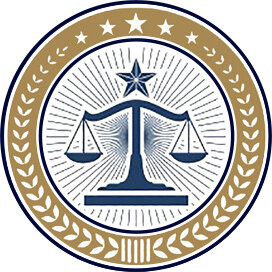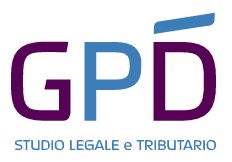Best Accounting & Auditing Lawyers in Rome
Share your needs with us, get contacted by law firms.
Free. Takes 2 min.
List of the best lawyers in Rome, Italy
About Accounting & Auditing Law in Rome, Italy
Accounting and auditing in Rome, Italy, are governed by a set of national regulations and professional standards designed to ensure transparency, reliability, and accuracy in the financial reporting of entities. The primary regulatory framework includes the Italian Civil Code and the Legislative Decree 58/1998, known as "Testo Unico della Finanza" (TUF). Furthermore, the Italian accounting profession is regulated by the Italian Accounting Profession (Ordine dei Dottori Commercialisti e degli Esperti Contabili). Auditors must also comply with the standards set by the Italian Auditing Board (Consiglio Nazionale dei Revisori Legali).
Why You May Need a Lawyer
There are several situations in which individuals or businesses might need legal assistance regarding accounting and auditing in Rome, Italy. These may include issues with tax filings, understanding and applying financial reporting standards, dealing with allegations of accounting fraud or irregularities, participating in mergers and acquisitions that require due diligence and financial statement analysis, facing an audit from the Italian Revenue Agency, or navigating the complexities of cross-border financial transactions.
Local Laws Overview
Key aspects of local laws in Rome affecting accounting and auditing include the adherence to the Italian accounting principles (Principi Contabili Italiani) and the European Union's adoption of International Financial Reporting Standards (IFRS) for listed companies. Additionally, Legislative Decree 139/2015 aligns domestic principles with IFRS. The Anti-Money Laundering Law (Legislative Decree 231/2007) and the regulations for statutory audits of annual accounts and consolidated accounts also play significant roles in the field of accounting and auditing. Compliance with these laws is critical for businesses operating in Rome.
Frequently Asked Questions
What is the role of a "Revisore Legale" in Italy?
The "Revisore Legale" is a legal auditor, a professional role required for auditing the financial statements of certain types of companies in Italy. This individual possesses the necessary qualifications and is registered with the Italian Auditing Board.
Are companies in Rome required to have their financial statements audited?
Italian law requires certain types of companies, including public companies, large entities, and financial institutions, to have their financial statements audited by qualified legal auditors.
How often must financial statements be filed with Italian authorities?
Generally, financial statements must be filed annually with the Italian Business Register. Listed companies also have specific reporting obligations such as quarterly reports.
Can foreign accountants practice in Rome, Italy?
Foreign accountants can practice in Rome if they meet specific requirements, including recognition of their professional qualifications under Italian law or EU regulations.
What are the penalties for accounting fraud in Rome, Italy?
Accounting fraud is a serious offense, with penalties ranging from fines to imprisonment, depending on the severity of the fraud.
Is it mandatory for businesses in Rome to follow IFRS?
Following IFRS is mandatory for publicly listed companies in Rome and across Italy, but not for private companies, which can opt to follow national GAAP (Generally Accepted Accounting Principles).
What tax-related issues might require legal help?
Tax-related issues requiring legal help may include disputes over tax assessments, guidance on tax compliance, assistance during tax audits, and advice on complex transactions.
How can a lawyer help with due diligence in mergers and acquisitions?
A lawyer can help identify financial risks, ensure regulatory compliance, and facilitate transparent and fair negotiations during mergers and acquisitions.
What is the significance of the Italian Civil Code in accounting?
The Italian Civil Code provides the fundamental legal framework governing accounting principles and practices for businesses in Italy.
Where can I report accounting misconduct or fraud?
Accounting misconduct or fraud can be reported to the Italian Revenue Agency, CONSOB (Commissione Nazionale per le Società e la Borsa), or the Italian Auditing Board, depending on the nature of the issue.
Additional Resources
For those seeking further information or legal advice regarding accounting and auditing in Rome, Italy, the following resources may be helpful:
- Ordine dei Dottori Commercialisti e degli Esperti Contabili (ODCEC) - The professional body for accountants in Italy.
- Consiglio Nazionale dei Revisori Legali - The regulatory body for legal auditors.
- Commissione Nazionale per le Società e la Borsa (CONSOB) - The government authority responsible for regulating the Italian securities market.
- Agenzia delle Entrate - The Italian Revenue Agency responsible for tax collection and compliance.
Next Steps
If you require legal assistance in the field of accounting and auditing in Rome, Italy, your next steps should include:
- Consulting with a "Dottore Commercialista" or a "Revisore Legale", especially one specialized in international and Italian accounting standards.
- Engaging a lawyer with expertise in corporate and financial law to ensure comprehensive advisory covering all aspects of the issue.
- Ensuring that any professional you engage is registered and recognized by the relevant Italian authorities.
- Taking prompt action to address any legal matters to avoid aggravation and potential penalties.
It's essential to address any legal concerns with due diligence to ensure compliance with the complex and evolving landscape of accounting and auditing law in Rome, Italy.
Lawzana helps you find the best lawyers and law firms in Rome through a curated and pre-screened list of qualified legal professionals. Our platform offers rankings and detailed profiles of attorneys and law firms, allowing you to compare based on practice areas, including Accounting & Auditing, experience, and client feedback.
Each profile includes a description of the firm's areas of practice, client reviews, team members and partners, year of establishment, spoken languages, office locations, contact information, social media presence, and any published articles or resources. Most firms on our platform speak English and are experienced in both local and international legal matters.
Get a quote from top-rated law firms in Rome, Italy — quickly, securely, and without unnecessary hassle.
Disclaimer:
The information provided on this page is for general informational purposes only and does not constitute legal advice. While we strive to ensure the accuracy and relevance of the content, legal information may change over time, and interpretations of the law can vary. You should always consult with a qualified legal professional for advice specific to your situation.
We disclaim all liability for actions taken or not taken based on the content of this page. If you believe any information is incorrect or outdated, please contact us, and we will review and update it where appropriate.















